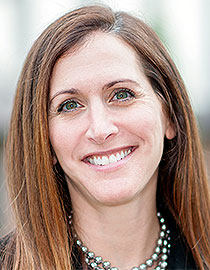Berkeley scholars: Here’s what Biden should accomplish right away
Get vaccines out ASAP. Renew civil rights in schools. End ‘endless wars.’ Rebuild trust.
January 22, 2021

New U.S. President Joe Biden faces a landscape of threats and challenges that may be unique in U.S. history. (Photo by Gage Skidmore via Flickr)
On his first day as the new U.S. president, Joe Biden sent a strong signal by going straight from the inauguration ceremony to work in the Oval Office. Faculty at UC Berkeley agree there is urgent work to be done across a range of fields: from the pandemic response and climate change to the economy, education and foreign relations.
But in statements to Berkeley News, the scholars identified another priority for the president and vice president — more psychological, almost spiritual, in its nature — that extends across the realms of policy:
Restore trust. Rebuild confidence. Re-establish leadership.
With the United States confronting one of the most difficult moments in its history, we asked faculty members for their views on the greatest challenges that Biden and Vice President Kamala Harris must address. Here’s what they told us:
Public spending must support everyone, not just the rich

Sara Hinkley (Photo by Elizabeth Rocío del Camacho, UC Berkeley Labor Center)
“Americans occupy increasingly separate economic spheres. Each year, more Americans struggle to afford housing, access quality education, pay for health care, and retire above poverty. A majority of Americans lack enough savings to weather a short spell of unemployment or a costly car repair. Our schools are more economically and racially segregated now than in the 1950s. Gaps in access to the Internet, paid sick leave, remote work, and health insurance have been ruthlessly exploited by the pandemic.
Meanwhile, the vast majority of public spending — especially tax expenditures — benefits households in the top 20%, who hold nearly 90% of the nation’s wealth. Democrats have perpetuated this distortion; Biden’s tax pledge defines “middle class” as households earning up to $400,000 — the top 1.8% of taxpayers. Services on which most Americans rely — mass transportation, unemployment insurance, public schools, Social Security — have been steadily undermined with little fanfare. Anti-poverty policies do just enough to keep people from the brink. Wealth begets wealth, blessed by the federal tax code.
If we are to sustain a meaningful democracy, the Democrats need a compelling campaign to fix our public spending so that it supports the majority of Americans on whose backs the economy has been resting.”
—Sara Hinkley is a policy research specialist at the UC Berkeley Labor Center and a lecturer at the College of Environmental Design. She was formerly the associate director of the UC Berkeley Institute for Research on Labor and Employment (IRLE).
Break down every obstacle to COVID vaccine distribution

Joseph Lewnard
“It was a relief to see President Biden, in the days leading up to and immediately after entering office, both acknowledge the tragedy of over 400,000 Americans dying from COVID-19 and begin taking concerted action to mitigate spread. To date, the failure to use levers available only to the federal government to tackle this crisis has caused staggering loss of life and ongoing disruption to all aspects of our lives.
Amid widespread community transmission of SARS-CoV-2 and increasing evidence of variants emerging with enhanced transmission potential or possible immune escape, we are in a race against time to achieve herd immunity through vaccination. Like almost all other aspects of our response to COVID-19, vaccine distribution has been a failure under the Trump administration.
Breaking down the barriers that continue to prevent us from administering vaccine doses as fast as they are produced is the most urgent challenge the US has faced in my lifetime. Hundreds of thousands of lives continue to hang in the balance.”
—Joseph Lewnard is an assistant professor of epidemiology at the School of Public Health, where he uses mathematical and statistical modeling to study infectious diseases. This month he won the 2021 Early Career Research Excellence Award from the Association of Schools and Programs of Public Health.
Develop global solutions for global climate challenges

Catherine Wolfram
“As promised, President Biden recommitted the United States to the Paris Agreement on Climate Change on Day One of his administration, an indication of how deeply he cares about addressing climate change. While rejoining Paris holds great symbolic value, the real work is not just committing to reduce our greenhouse gas emissions, but adopting policies that will have a tangible impact.
The key will be to remember that climate change is a global problem, and a ton of greenhouse gas is equally harmful, whether it’s emitted in the U.S., Kenya, Indonesia or anywhere else. Currently, the U.S. only emits 13% of global greenhouse gases, so it will be important for the U.S. to pursue policies that can also have impact where the other 87% of emissions are created.
For example, I’d rather the U.S. government spend a dollar on finding new ways to reduce emissions at manufacturing plants than on promoting more Teslas. The cost of a Tesla far exceeds the income of most people in the world, but there are greenhouse gas-intensive manufacturing plants in most places. The U.S. has a great opportunity to re-establish global leadership on addressing this crucial issue.”
—Catherine Wolfram is the associate dean for academic affairs and the Cora Jane Flood Professor of Business Administration at the UC Berkeley Haas School of Business. She is a leading expert on energy and environmental economics.
Renew the civil rights agenda for K-12 public education

Janelle Scott (Photo by Julia Perry)
“Equitable, diverse, quality public schools are fundamental in a democracy, and public education is an enduring cornerstone in the struggle for civil rights and racial justice. Yet, the Trump administration was hostile to K-12 civil rights policies and ambivalent about the importance of public education. It also failed to provide adequate supports for states to develop remote learning opportunities under the COVID-19 pandemic, leaving localities struggling to provide equitable access to learning technology and Internet connectivity to vulnerable students and families. Existing educational inequalities deepened due to this inaction.
The federal government should move quickly to restore civil rights policies and enforcement in K-12 education. The Biden administration should work with a broad educational justice coalition to expand and strengthen voluntary school desegregation. It should encourage magnet schools and school choice policies that include diversity provisions, increase funding for under-resourced schools and provide supports for school nurses, psychologists and social workers.
Further, it should require annual data collection through the Office for Civil Rights to document and intervene in discriminatory school practices, such as school discipline, and support the passage of the Equity and Inclusion Enforcement Act. This would ensure that equality of opportunity is a hallmark of federal K-12 education policy.”
—Janelle Scott is the Robert C. and Mary Catherine Birgeneau Distinguished Chair in Educational Disparities, affiliated with the Graduate School of Education, Department of African American Studies and Goldman School of Public Policy. She is a co-author of An Agenda for Restoring Civil Rights in K-12 Federal Education Policy (National Education Policy Center, Boulder, Colo., November 2020)
Restore the world’s confidence in America’s leadership

Michaela Mattes (UC Berkeley photo)
“President Biden and Vice President Harris confront the formidable challenge of rebuilding the United States’ reputation internationally.
Trust in U.S. leadership among allies is at an all-time low, while U.S. enemies have been emboldened. The pandemic has accelerated the rise of China, and countries have started to prepare for a post-American order. By recommitting to multilateral cooperation, including on such issues as climate change, the Biden administration will seek to restore U.S. global leadership.
This will not be an easy task: The last four years have shaken the world’s confidence in America. If such profound foreign policy changes were possible under President Trump, who is to say that this will not happen again under future administrations? Doubts about the reliability of U.S. international commitments will prove costly for Americans: While in the past the U.S. was able to rely on persuasion and soft power, now it will likely have to resort to material concessions and coercion to achieve its goals.”
—Michaela Mattes is an associate professor in the Charles and Louise Travers Department of Political Science. She specializes in international relations, with research and teaching interests at the intersection of international conflict and cooperation.
Deploy government programs to improve lives — and rebuild trust

Amy Lerman (UC Berkeley photo)
“Perhaps the biggest challenge the incoming administration will face is the extraordinary distrust most Americans have of government. Last year, just 20% of adults in the U.S. reported trusting government to do what’s right. Democrats have become somewhat more distrusting over the past four years, but trust has been declining for decades.
We know that an array of cognitive biases make it difficult to change these kinds of political perceptions. What we know can successfully change some types of attitudes, though, is the direct, personal experience people have with public programs. In my own work, for instance, I find that people who benefited from the Affordable Care Act became more supportive of the government’s role in health care. This was true even of Republicans and conservatives.
This suggests that the Biden administration is on the right track. The new president has laid out a robust agenda for his first days in office, including a flurry of executive orders that will have immediate and meaningful impacts for millions of struggling Americans. While this won’t instantly reverse decades of declining trust in government, these direct benefits might just begin to restore a sense that government has the capacity to improve people’s everyday lives.”
—Amy E. Lerman is a professor on the faculties of the Goldman School of Public Policy and the Charles and Louise Travers Department of Political Science. She is the author of Good Enough for Government Work: The Public Reputation Crisis in America (And What We Can Do to Fix It) (2019, University of Chicago Press), which examines how perceptions of government shape public attitudes toward privatization.
End the endless wars. Support education, arts and health

Angela Marino
“One of the challenges I see right now is the cultural vacuum that seeks to continue endless wars in U.S. foreign policy. The idea is that you can debate gun laws and speech rights internally through two parties as a practice of freedom, but what you can’t talk about in either party is how the United States defends capitalist interests over the planet’s needs, ousting popular elected leadership. Where direct removal is impossible, it sets coercive sanctions to force regime change.
How can we envision a full reversal of the military budget so that we can create diverse and vibrant education, arts, and health care?
We will need a great deal of energy to lift us to the window and look out that window to see that the U.S. is a symbol of pain to many people of the world — a destroyer of culture, a killer of leaders and the highest bidder on planetary death.
This is a question of the humanities, an urgent question that I believe must genuinely take place before some false call for unity under the existing order. How free can we possibly be when our tax dollars are used to imprison our own people and uphold empire?”
—Angela Marino is an associate professor in the Department of Theater, Dance, and Performance Studies and a faculty affiliate of the UC Berkeley Latinx Research Center.